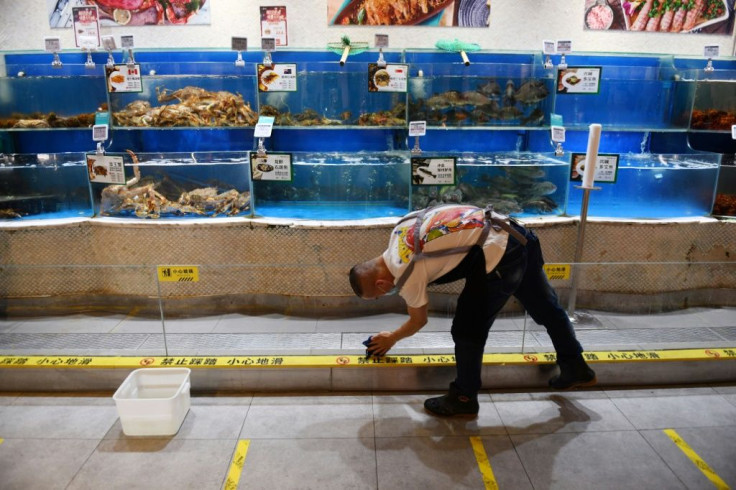Beijing Coronavirus Second Wave: Massive Quarantine Measures In Place Amid 'Extremely Grave' Situation
After a nearly two month stretch of time with no new cases of COVID-19 reported, a new outbreak in Beijing, the capital city of the People’s Republic of China is raising concerns and prompting a quick response from the authorities.
One Communist Party official, Cai Qi, described the situation in Beijing as “extremely grave” and that the new surge in cases "truly rang alarm bells."
About 150 new cases in recent days have sent 29 communities back to lockdown status. The outbreak is eerily like the original outbreak in Wuhan that occurred in January and was linked to a large food market.
Authorities were quick to react:
- They erected barricades to isolate neighborhoods known to have infected people.
- A massive testing campaign began. First targeted were workers and visitors at the Xinfadi wholesale market estimated at 200,000 people plus another 90,000 residents who live in surrounding neighborhoods to the market.
- Massive housing blocks were placed under quarantine and food deliveries were blocked from going no further than perimeter roadblocks.
- Taxis and ride-sharing services have also been banned from taking people outside the city and those had already left were ordered to report to local health officials as soon as possible.
- On Wednesday (June 17), China canceled hundreds of flights to and from its capital.
The vast Xinfadi wholesale market is the epicenter of the country's latest battle against COVID-19. It is huge, with one estimate at 250 football fields. This makes it between 20 and 26 times the size of the Wuhan market in the Hubei province depending on if a normal-sized soccer field or an American football field is used in the comparison.
It claims to be the biggest wholesale food market in Asia, supplying up to 80% of the meat and vegetables to the capital's 22 million people. Wuhan’s population of 11 million is about half that of Beijing.
China's chief epidemiologist Wu Zunyou who is worried about the conditions of the Wuhan and Beijing markets told CBS News, "These two events indicate that it starts from a market and is also related to the seafood or meat. That environment, particularly the cold, wet environment, may be able to keep the virus alive for a long time."
The new cases in Beijing and another surge reported in Tokyo, Japan may serve as a warning to cities in the U.S. and other countries about how reopening too soon comes at a risk of reinfection. The Chinese Communist government may have an additional problem of lack of transparency that surfaced during the Wuhan outbreak and could now be connected to the new Beijing surge. That will give credence to the criticism by the U.S. and Australia over how the coronavirus was handled at its onset.
Worldometer, an online statistical tracker yields an interesting comparison. On March 1, the number of cases in China passed 80,000 and has only increased to 83,265 as of June 17 with most of the cases from Wuhan and the Hubei province. By comparison, the U.S. count on March 26 was 86,621 and is now at over 2.2 million cases in a population about ¼ that of the Communist giant.
Election year politics may be the driving force in the U.S. numbers. If “saving face” is driving the Chinese numbers, the true “graveness” of the situation may never be known.

© Copyright IBTimes 2024. All rights reserved.





















